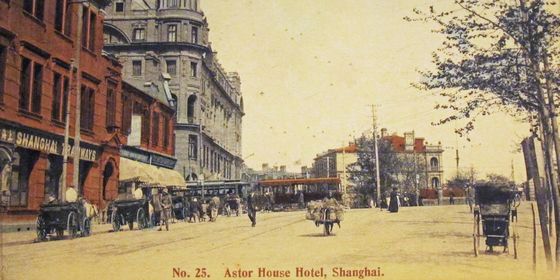The new Avengers movie is out tonight in China, but some people already saw it—by going abroad
“Is there a place that doesn’t need a passport, where plane tickets are still available, and Infinity War showing?” a Chinese Marvel fan lamented on April 25. A commenter (who clearly didn’t read all of the question) suggested glibly, “Just go to Hong Kong!”
The new Avengers movie will be released in mainland theaters today, but there are already 11 topics on Weibo related to this long-waited event; the hashtag #复仇者联盟3:无限战争# (#Avengers 3: Infinity War#) has there are 1,336,000 discussions, 10,000 followers, and 920 million reads. From Weibo to Baidu Tieba to Douban to QQ, there are groups dedicated to organizing fans, to travel to see Infinity War in Hong Kong, the perfect combination holiday for the May Labor Day weekend: movies and shopping.
China makes up 19 percent of the worldwide box office of the Marvel movie universe, ranking behind only the US and Canada. Since the first movie, Iron Man, came out in 2008, the franchise has seen the release of 18 movies based on the comics written by Stan Lee, and earned over 10 billion RMB (approximately 1,641,612,183) in China. With an estimated budget of 361 million USD, Infinity War is one of the most expensive films ever made. The movie has earned 1.88 billion USD worldwide since its April 27 North American release, but the release date on the Chinese mainland is 14 days behind, making it hard for fans not to feel left out of the excitement—or avoid spoilers on the internet.
Chinese fans traveling abroad to see the latest movies releases is not a new phenomenon. Foreign movies are typically late to release date in China because they are inspected by the State Administration of Press, Publication, Radio, Film, and Television (SAPPRFT) for “inappropriate” content, due to the mainland’s lack of a movie-rating system. Translation can cause additional delays. For spoilers-wary film buffs, Hong Kong is a popular destination to catch global premieres, especially for those living in Guangdong province—it’s a stone’s throw from Shenzhen and three hours by train to Guangzhou, or approximately one drive across Beijing in rush hour. Japan also seems popular, from the comments in relevant social media groups that organize these “premiere tourism” trips.
Movies rated R in North America, most recently Deadpool and Suicide Squad, are especially favored by film tourists, as they won’t the chance to pass the inspection of SAPPRFT at all. Dedicated movie-goers are willing to pay well to see these releases—in addition to transportation and hotels, one typically needs to pay a local agent to buy the ticket for the premiere. On Taobao, agents offer Infinity War tickets at 90 to 188 RMB, based on whether it’s the premiere, IMAX, 2D, or 3D. In one e-shop called 80966港澳购(“80996 Hong Kong-Macau Shopping”), 1,701 people have bought tickets at 100 RMB each, and most gave them a good review, but also complained about the price.
Though, presumably, the fans have now returned to China cashless and happy, the late release of Infinity War is still controversial. Generally, influential movies are less commonly delayed. Moreover, given China’s importance to Marvel as a top offshore box office, the film’s insipid promotion on the mainland—including a chaotic Marvel event held at Shanghai Disneyland in April—has raised eyebrows. Hollywood Reporter speculates that Chinese regulators want only domestic films to open during important holidays, in this case Labor Day. Netizens, though, point out that Japanese animated film Mary and the Witch’s Flower premiered the same weekend, and suggest that it was Disney who refused to hand out the movie content and delayed the translation. These incidents have not stopped Chinese cinema-goers from supporting the movie—the 47.5 million USD in ticket presales on Wednesday night in Beijing more than proved it.











